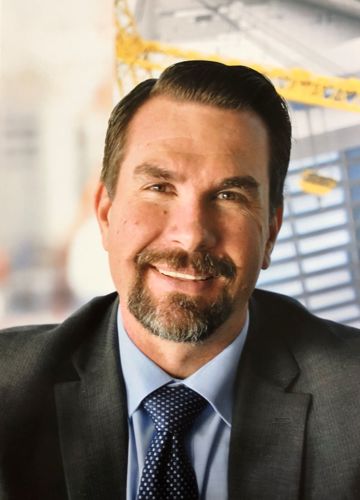
Freight forwarding is possibly the largest industry those without knowledge of logistics have never heard of, but without it, the world would not function. Chief Technology Officer and Co-Founder Nisarg Metha’s background is in technology and he was eager to do something useful, while his fellow co-founder, James Coombes, had worked in banking and started an import company, which meant working with forwarders and experiencing the challenges of importing his goods.
To transform operations, Raft uses AI to automate processes across the shipment lifecycle, explains Chief Growth Officer, Lionel van der Walt, covering matters such as finance, operations, sales, customs and client-facing services such as visibility for emissions tracking and other information to create a central platform. Using AI as the foundation, it turns non-structured data into structured data, which can be tied into the forwarder’s system, then workflows can be built to streamline operations.
The visibility side provides a lot of data in areas such as internal performance and how a company is performing, highlighting if they are doing things like overcharging. One of the biggest challenges for forwarders, says van der Walt, is finding a discrepancy, which means searching for the job costing owner to find out why the issue has occurred.
“With our system, we immediately pull that data out of the system so they immediately see it without having to spend hours finding out who the person is,” explains van der Walt.

As a global platform, Raft is facilitating communication and collaboration so emails and chat programs are no longer necessary, easing coordination between parties. Companies often use different technologies and service providers, which can make operations disjointed.
“We become like a central hub, tying in through integration all of these disjointed pieces and provide a unified view of their operations across all of these aspects. So over and above the data extraction, our integration into TMSs, workflow and visibility, we are bringing everything together across their systems, creating an ecosystem where they can have a helicopter view of all their operations,” says van der Walt.
AI is being widely talked about in the media with alarmist headlines saying it will wipe out jobs and potentially humanity. It is not about cutting jobs but making processes more efficient by carrying out manual, labour-intensive tasks so staff can do more useful tasks, says Metha.
He says, “The role of AI is taking data that makes no sense to a system because it is in an unstructured or semi-structured format, bringing into a single source of truth that allows a freight forwarder to take intelligent actions on top of it. It is the system of action that allows you to take away boring, repetitive, non-value-adding tasks and focus on what you should be doing as a freight forwarder, which is serving your customers.”
Raft serves 60 companies globally, all of whom have air cargo divisions, varying in size from global companies, regional players to small, local forwarders. The platform has been designed so it can be scaled up or down depending on the size of the customer. Making the platform easy to set up was important so customers could start using the system quickly and easily, and it has been designed so customers can customise the system themselves without needing to ask for technical assistance.
Whether a large or small customer, they have the same basic requirements, says Metha, saying, “While every freight forwarder is different to an extent, their needs, requirements and challenges and what they do on a day-to-day basis is similar enough that what they are looking for from a system is not drastically different.”
They view the platform as taking away the drudgery, with Metha quoting a customer who said they want to pay people for their brains not their fingers, meaning not wasting time on boring, manual tasks but high-value actions such as building relationships with customers and providing them with good service without having to switch between multiple systems and screens.
He says, “They see it as a way to upskill their people, to free them from low-value add tasks and to bring a more modern experience with modern processes into their organisation and they are doing it to great effect. We have a tonne of great success stories, which is why we are growing really quickly.”

Metha believes that the pandemic was the catalyst for adopting technology, saying that the industry is at a moment where people know there are better ways of doing things but adopting change is more than updating a system. The pandemic forced people’s hands because they had to change and now they have changed, they do not want to go back to the old methods.
He says, “Their old ways of doing things were forcibly taken away, which accelerated the adoption of technology. There were practical blockers which the pandemic took away, creating this perfect world where forwarders were able to bring in modern processes and tools in order to cope with the new normal.”
Van der Walt added that the industry’s biggest challenge is its complexity and being disjointed. There are so many stakeholders and processes that need to be followed, which are not necessarily connected. A lot of work has happened in silos, so van der Walt believes that tying this together is the next stage to streamline processes.
He says, “I think that is a natural next step and we are only at the start. I think you are going to see a lot more of this in the future.”
This article was published in the June issue of Air Logistics International, click here to read the digital edition and click here to subscribe.
